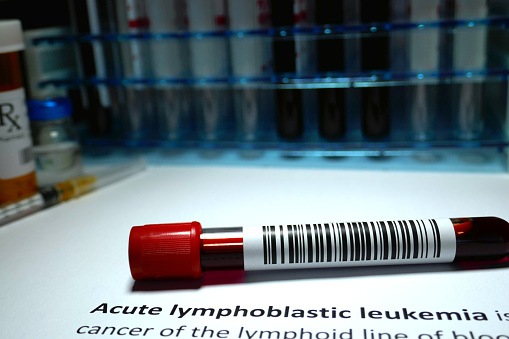
Overweight children and adolescents receiving chemotherapy to treat acute lymphoblastic leukemia (ALL) have worse outcomes compared to lean children, according to a study published in Blood Advances.
“To our knowledge, this is the first study to show that by limiting calories and increasing exercise we can make chemotherapy more effective in eliminating leukemia cells within the first month of therapy, decreasing the chances of disease relapse in children and adolescents,” says Principal Investigator Etan Orgel, MD, MS, Director of the Medical Supportive Care Service in the Cancer and Blood Disease Institute at Children’s Hospital Los Angeles via a press release.
Research shows that youth who are obese when they begin chemotherapy are more than twice as likely to have remaining cancer cells after one month of treatment–and an increased chance of disease relapse–compared to their lean counterparts. Therefore, in this study, researchers worked with registered dietitians and physical therapists who created personalized diet and exercise plans for 40 patients between the ages of 10 and 21 with newly diagnosed leukemia.
“This is proof of concept that it is possible to increase the effectiveness of chemotherapy without adding other medications and their potential side effects,” says Dr. Orgel, who is also an associate professor of clinical pediatrics at the Keck School of Medicine of USC. “This short-term intervention is inexpensive and easily available to providers and families everywhere.”
https://twitter.com/thedextazlab/status/1377657881194074112
“Changing diet and exercise made the chemotherapy work better– that’s the big news of this study. But we also need to figure out how,” says Steven Mittelman, MD, PhD, Chief of Pediatric Endocrinology at UCLA Mattel Children’s Hospital and member of UCLA’s Jonsson Comprehensive Cancer Center. “Understanding the biological changes responsible for this effect will help us make these interventions even better.” Dr. Mittelman co-led the study and was senior author on the paper.
News: Diet + exercise + chemo = increased survival in youth with leukemia – https://t.co/ORNz6NPPfx
— 7thSpace Interactive (@7thSpaceCom) April 1, 2021







 © 2025 Mashup Media, LLC, a Formedics Property. All Rights Reserved.
© 2025 Mashup Media, LLC, a Formedics Property. All Rights Reserved.